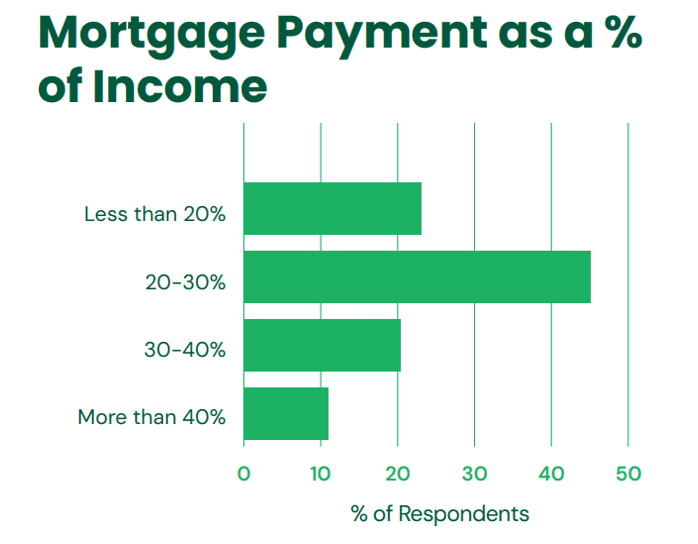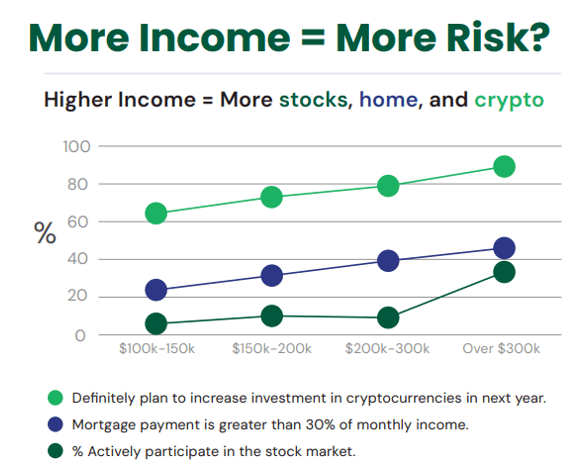Understanding Investment Behavior in Emerging Wealth Families
Blog post
12/04/24As mentioned in our previous blog, THOR Wealth Management recently commissioned a survey of young couples – what we will refer to as emerging wealth. In the survey, we delved into the investment behavior of the emerging wealth and compared their habits based on income levels. We noticed a trend that persisted as income levels increased. To view the results of the survey, click here.
How Age Shapes Investment Behavior
One of the trends we noticed in our survey was that the emerging wealth have an increased appetite for investment risk. Emerging wealth families today are more likely to allocate resources to higher-risk, higher-reward investments compared to generations in the past, especially as incomes increase. Among emerging wealth families in the U.S., 72% are participating in the stock market—the highest rate in the world. They are also more inclined to explore alternative investments such as cryptocurrencies, with 66% planning to increase their allocation to this rapidly evolving asset class in the next year. This growing trend illustrates how financial stability at a young age enables families to pursue a broader range of investment opportunities.
Real Estate: A Pillar of Long-Term Wealth
In addition to equities and alternative investments like cryptocurrencies, real estate remains a cornerstone for many emerging wealth families. Our survey revealed that 71% of respondents view real estate as a key long-term wealth-building strategy.
Interestingly, we also found a correlation between income levels and mortgage spending. As incomes rise, more families take on mortgages that consume 30% or more of their income. This suggests that higher-income families are more willing to allocate a significant portion of their income toward real estate, seeing it as a foundational component of their financial growth.
When analyzing mortgage payments as a percentage of income, the data reveals the following distribution among emerging wealth families:

We see that most families are keeping their mortgage payments within a manageable range, with nearly half staying in that sweet spot of 20% to 30%.
The Income-Risk Connection
As our survey reveals, the connection between rising income levels and a higher risk appetite is undeniable. Higher-income emerging wealth families are more likely to embrace a diversified portfolio that includes not only traditional investments like stocks and bonds but also alternative assets such as cryptocurrency and private equity.
With greater financial stability, these families have more capacity to absorb risk, allowing them to explore higher-return opportunities. Many have access to an investment advisor who helps them navigate these options, providing guidance on how to make informed decisions. This support gives them the confidence to pursue strategies that offer the potential for greater growth, even with the associated risks.
This growing trend underscores the importance of both understanding one’s risk tolerance and being able to manage it effectively, especially as income rises and financial opportunities expand.

Conclusion
As we’ve seen, the relationship between income and investment behavior is clear: higher income levels often correlate with a greater willingness to take on investment risk. Emerging wealth families are diversifying their portfolios, seeking long-term growth through traditional and alternative assets, with real estate remaining a significant pillar of their financial strategy. The ability to invest in higher-risk opportunities—whether stocks, cryptocurrencies, or private equity—is facilitated by increased income and risk appetite.
If you have questions and would like to talk with us further, please call us at 513-271-6777. For more THOR reading, click here to go to the Blogs and Market Updates section on our website. Follow us on social media: